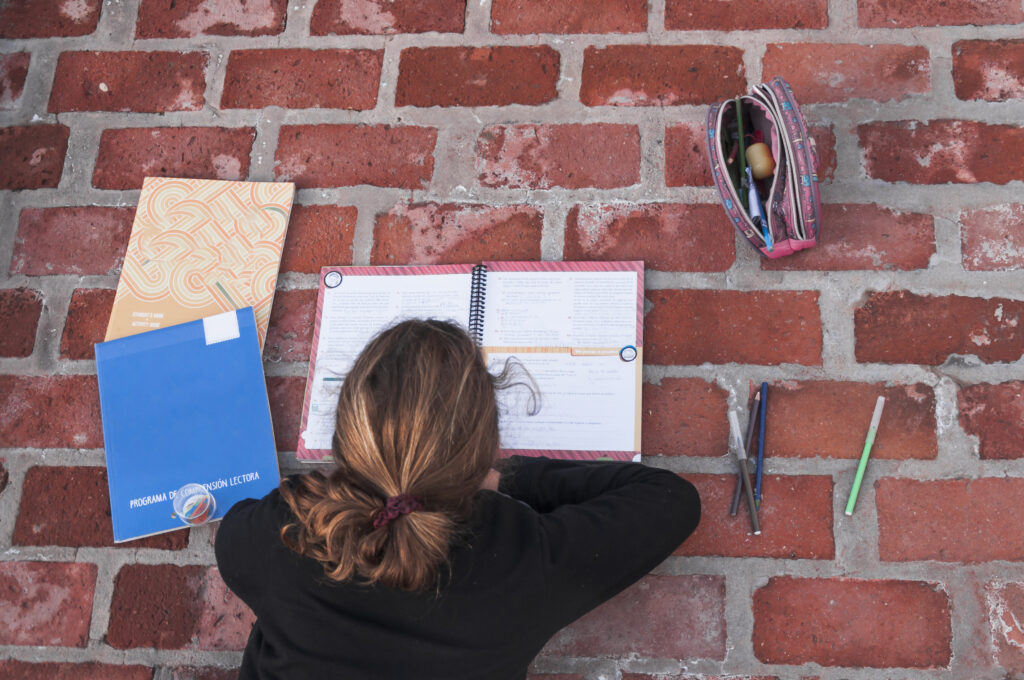Teenager With Higher IQ Than Stephen Hawking Gets 23 A-Levels With Grades of A and A*

What does it mean to push the limits of human potential? For most teenagers in Britain, the mountain of three A-levels feels like more than enough to climb. Yet while thousands of students every year wrestle with the pressure of balancing revision schedules and coursework, one young woman turned that mountain into little more than a stepping stone.
At just eighteen, Mahnoor Cheema didn’t settle for the standard. She devoured twenty-three A-levels, earning nothing less than an A or A* in every subject. To put that into perspective, fewer than a third of students nationwide achieve even one A* at A-level. Her IQ, measured at 161, surpasses some of history’s most iconic minds Albert Einstein and Stephen Hawking. But her story isn’t just about numbers or comparisons. It’s about curiosity, resilience, and the refusal to accept limits that others believe are fixed.
Mahnoor’s journey challenges our assumptions about what is possible for a young person in today’s world of rigid educational pathways. It forces us to ask whether boundaries like “too much” or “impossible” are truly real or whether they are simply constructs designed to keep us comfortable.
Early Life and Family Influence
Behind every remarkable achievement lies a story of beginnings, and Mahnoor Cheema’s early years reveal how fertile ground can nurture an uncommon mind. Born in the UK to Pakistani parents, she spent part of her childhood in Lahore before returning to Britain in 2016. This cross-cultural upbringing exposed her to a blend of educational traditions and values, shaping her perspective long before she set foot in an exam hall.
Signs of her intellectual appetite appeared almost as soon as she could read. By the age of six, Mahnoor had finished all seven Harry Potter novels a literary marathon for most adults, let alone a child. At eleven, she accomplished something even more astonishing: memorizing the Oxford English Dictionary. It wasn’t a party trick but a reflection of her unusual memory and her joy in absorbing language itself. While many students dread vocabulary lists, she treated words as treasures to be collected and explored.
Mahnoor Cheema, an 18-year-old British-Pakistani student, has made headlines with her extraordinary academic achievements. With an IQ of 161, one point higher than Stephen Hawking’s estimated IQ, she completed 23 A-Levels with grades of A or A*, far surpassing the typical three… pic.twitter.com/lrTVHufpGU
— South Asia Watch (@MuhammadAli_PhD) August 19, 2025
The bedrock of this pursuit was her parents’ unwavering support. Her father, Usman, a barrister, and her mother, Tayyaba, an economist, valued education not as a means of pressure but as an open invitation to curiosity. Tayyaba, in particular, became more than a parent she was Mahnoor’s study partner, mentor, and role model. She devised flexible routines that encouraged balance: tackling one subject at a time, building in space for music, chess, and swimming, and ensuring Mahnoor never became so consumed by books that she lost sight of life outside them.
Crucially, their guidance was rooted in freedom. There was no push to perform for external validation, only the quiet insistence that whatever Mahnoor chose to do, she should do it wholeheartedly. That philosophy created a safe space where ambition could flourish without fear of failure. It’s a reminder that genius is rarely born in isolation it is cultivated in environments where curiosity is nurtured, not stifled, and where learning is presented as an adventure rather than a burden.
Ambition, Resistance, and Breakthroughs

Every extraordinary journey begins with a moment of defiance the decision to step outside the boundaries drawn by others. For Mahnoor Cheema, that moment came when she looked at the standard expectation of three A-levels and saw only limitation. She initially set her sights even higher than the 23 that would make headlines: her original goal was to attempt 31 subjects. Teachers at Henrietta Barnett School warned her against it, urging her to scale back for fear of exhaustion. To them, the workload looked impossible. To her, it looked like possibility.
In the end, a compromise was reached: 23 A-levels, still more than seven times what most of her peers would face. What might have seemed like a crushing load for others became a proving ground for Mahnoor’s stamina and focus. Within her first two months of sixth form, she had already secured four A* grades, a preview of the momentum that would carry her through the rest of her exams. Each victory reinforced her conviction that boundaries are often illusions waiting to be shattered.
The range of subjects she pursued reads like an entire university catalogue: from physics, chemistry, and biology to law, sociology, and classical civilisation, alongside languages such as French, German, and Latin. She also embraced creative disciplines film studies, English literature, and media studies—that required not just memorization but analysis, storytelling, and original thought. This breadth of study defied the stereotype of a one-dimensional exam machine. For Mahnoor, the point was never to collect certificates; it was to feed her many interests, to keep boredom at bay, and to stretch the capacity of her own mind.
Resistance never fully disappeared. Administrators worried about her attendance as she juggled lessons with exam schedules. Teachers feared she would collapse under the weight of expectation. Yet Mahnoor pressed on, fueled by a conviction that burnout is less a destiny and more a mindset. In her words, “It’s not burnout if you enjoy what you’re doing.” That philosophy transformed pressure into purpose, turning the very doubts around her into fuel.
Study Habits and Philosophy of Learning

What sets Mahnoor Cheema apart is not only the sheer scale of her achievement but also the way she approaches learning itself. Many high achievers thrive on meticulous notes, color-coded timetables, and endless revision cycles. Mahnoor’s method couldn’t be more different. She describes reading as almost effortless: she opens a book, absorbs the content, and moves forward. Notes, she insists, are a “waste of time.” Her retention is striking, but it’s powered by something deeper than memory it’s driven by genuine curiosity.
This philosophy extends to how she views exams. For her, the test is not the mountain; it’s the checkpoint on a much larger journey of discovery. In subjects like film studies, she didn’t just analyze existing works but created her own writing scripts, editing, and producing films. In English literature, she developed original critical stances rather than rehearsing stock interpretations. Mahnoor rejects the label of “exam robot,” reminding people that many of her subjects required as much creativity and interpretation as they did memorization. To her, the joy lies in “the rich knowledge,” not simply the certificate at the end.
Her attitude toward stress reveals just as much about her philosophy. While most teenagers feel crushed by the pressure of three A-levels, Mahnoor insists that burnout is largely a matter of perspective. “Burnout is a choice,” she has said. “It’s not burnout if you enjoy what you’re doing.” For her, motivation is not a scarce resource it is replenished by the excitement of engaging with ideas across disciplines. That belief reshaped what would otherwise have been an unbearable schedule into a challenge she chose to embrace.
Even her daily routine reflected this unusual mindset. Instead of the traditional nine-to-five rhythm of school and homework, she created her own cycle. After school, she often slept for a few hours, woke up in the evening to study or socialize, and returned to bed late at night. It was an unconventional pattern, but it worked for her: it gave her energy, focus, and the flexibility to weave study around music, chess, swimming, and time with friends.
A Well-Rounded Prodigy

While Mahnoor Cheema’s record-shattering 23 A-levels have made headlines, her brilliance can’t be measured by exam results alone. Long before she was known as Britain’s brightest teenager, she was already excelling in areas far outside the classroom. At just 16, she earned an AMusTCL diploma in music, a qualification typically reserved for university-level musicians. Alongside her mastery of piano, she immersed herself in chess and swimming, proof that her intellectual intensity was balanced with creative and physical outlets.
Her achievements in performance are just as striking. She won gold medals in acting and public speaking from the London Academy of Music and Dramatic Art (LAMDA), showing that her talents extend to the stage as much as to the exam hall. These successes dismantle the stereotype of the socially withdrawn prodigy. Mahnoor has shown herself to be as confident in front of an audience as she is in front of a test paper, equally comfortable delivering a speech or composing music as she is solving equations or analyzing literature.
These pursuits reflect a deliberate balance, encouraged by her family, between academic rigor and personal growth. Her mother often emphasized that Mahnoor’s education should never come at the cost of joy or exploration. That philosophy allowed her to approach learning not as confinement but as expansion, weaving creativity, intellect, and self-expression together into one tapestry.
Mahnoor’s ambitions also extend far beyond accumulating accolades. She dreams of delivering a TED Talk one day, seeing it as a platform to share her philosophy of learning and to inspire other young people to challenge their own limits. Her decision to pursue medicine at Oxford is born of that same vision: to apply her intellect not for personal recognition but to serve others, with a special interest in neuroscience and the mysteries of the human brain.
Redefining Education and Success

Her journey shows both the promise and the limitations of standardized education. On one hand, A-levels provide a shared benchmark, a way to measure achievement on equal ground. On the other, they risk stifling those who crave more than the standard path can offer. When teachers warned Mahnoor against taking on too much, they were protecting her from the real risks of exhaustion and burnout. Yet her success demonstrates that, for some, pushing beyond convention is not only possible but necessary to stay engaged.
This tension points to a broader truth: success cannot be defined in one way. For many, mastering three A-levels is a genuine triumph. For Mahnoor, it would have been a cage. Her story illustrates the need for flexibility, for educational systems that can stretch to meet students where they are whether that means offering more challenges to the gifted or more support to those who struggle.
It also challenges our cultural obsession with grades as the ultimate metric of worth. Mahnoor herself insists that exams are not the goal but simply markers on a larger journey of curiosity. That perspective reframes achievement not as a race to the top of a narrow ladder, but as an exploration of knowledge for its own sake. In an age where students often associate learning with anxiety, her example is a reminder that education, at its best, should spark joy, not fear.
Lessons for Students, Parents, and Educators

Mahnoor Cheema’s story is dazzling, but its value isn’t in encouraging every teenager to attempt 23 A-levels. Her example isn’t a template it’s a set of lessons about passion, support, and redefining success. For students, the first lesson is that curiosity is the strongest engine of learning. Mahnoor didn’t see her subjects as obligations; she saw them as opportunities. That mindset is what allowed her to sustain effort without burning out. Students may not share her appetite for 23 subjects, but they can share her approach: let curiosity drive the work rather than fear of failure.
For parents, her journey underscores the importance of encouragement without pressure. Mahnoor’s mother, Tayyaba, wasn’t a drill sergeant. She was a collaborator, creating study schedules, balancing work with play, and insisting that Mahnoor maintain a social life alongside academics. Her father echoed this philosophy, urging her to give her best to whatever she chose, not to live up to some imposed expectation. That kind of environment structured yet free, demanding yet supportive allowed Mahnoor to stretch her abilities without breaking under them.
For educators, the lesson is about flexibility. Systems are designed to protect the average student, but outliers like Mahnoor reveal the need for adaptability. Teachers feared she was overreaching, yet her success shows that for some, limits meant to protect can become limits that confine. The challenge is to create space for exceptional students to grow without leaving others behind. That might mean offering enrichment opportunities, mentorship, or alternative pathways that allow talent to flourish outside rigid frameworks.
Breaking the Boundaries Within Us
Mahnoor Cheema’s journey is not an invitation to measure yourself against her 23 A-levels or her IQ score. It is an invitation to reimagine your own boundaries. What looks impossible from a distance often turns out to be a limitation we’ve quietly accepted, not a wall set in stone. Mahnoor refused to be boxed in, and in doing so, she revealed something bigger than personal achievement: that passion fuels endurance, curiosity expands potential, and success is as much about mindset as it is about intellect.
Her story reminds us that education is not about ticking boxes or chasing grades it is about awakening a hunger to know, to create, to contribute. Whether your “A-levels” are literal exams, career goals, or personal challenges, the principle remains the same. When you approach your path with curiosity and commitment, what once seemed unthinkable becomes possible.
The question isn’t whether you could or should attempt 23 A-levels. The question is this: where have you been underestimating yourself? And what could happen if you stopped seeing limits as barriers and started seeing them as starting lines?
Loading...

